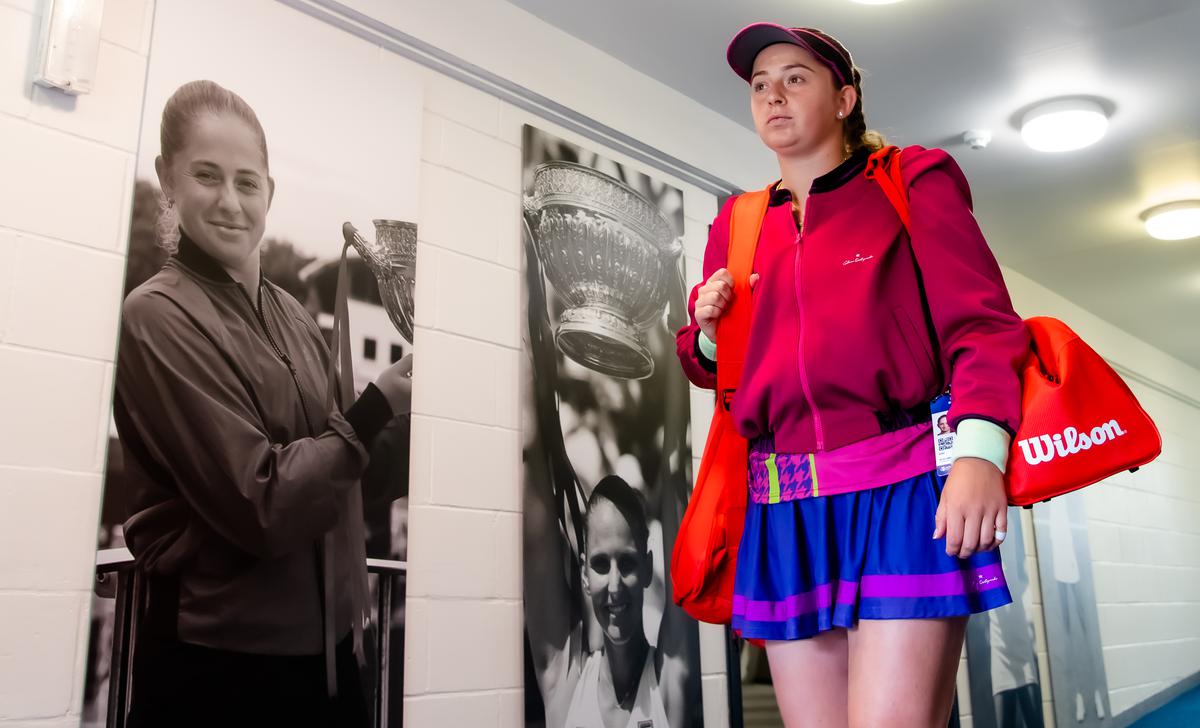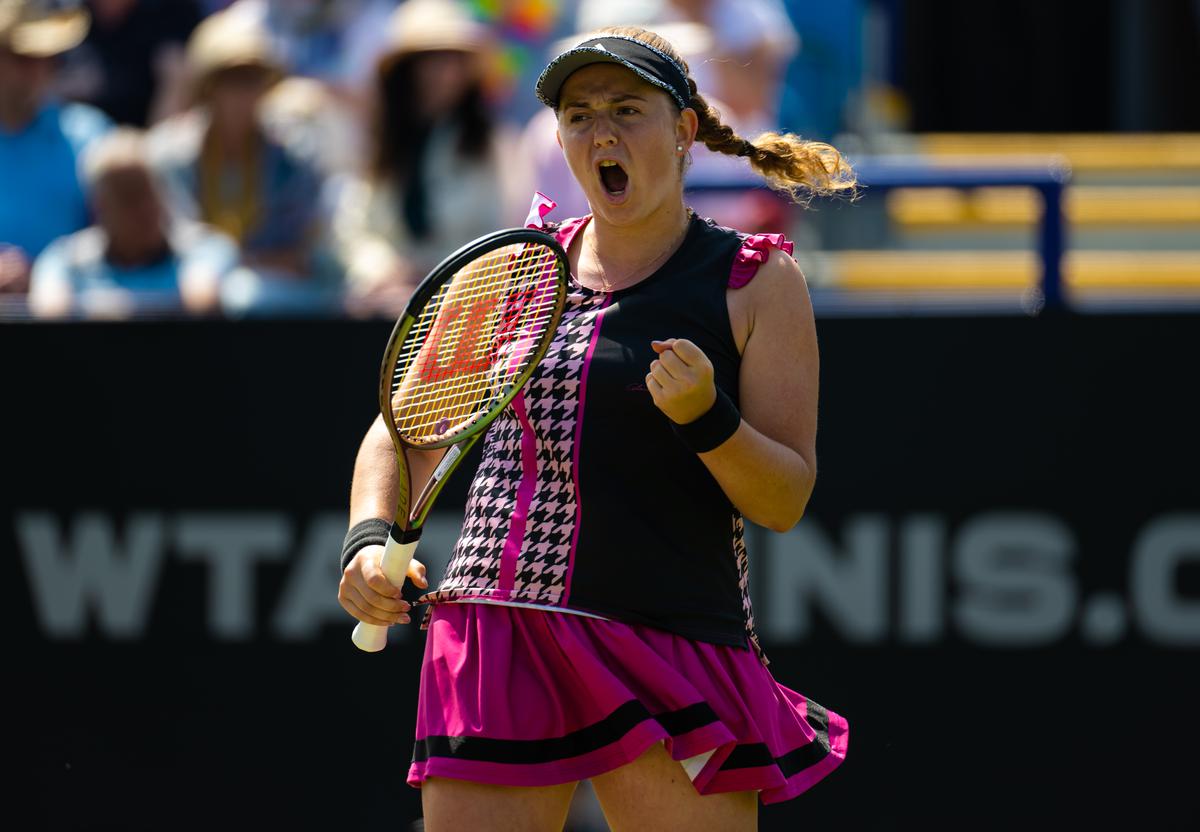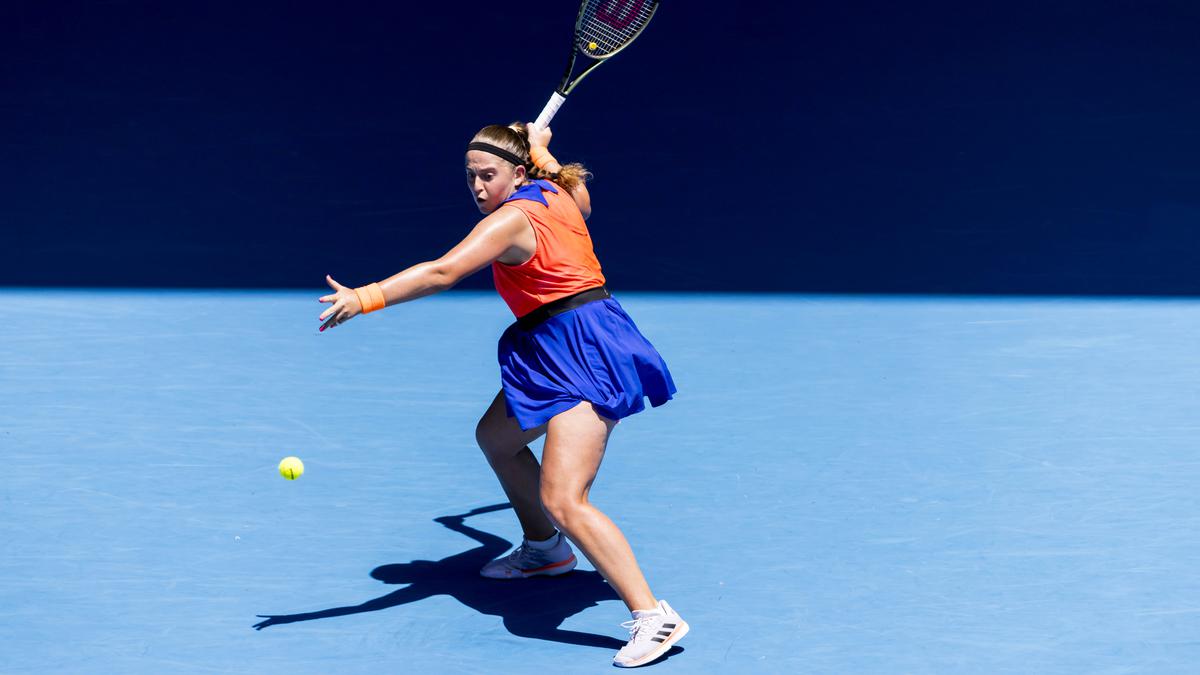The remaking of Jelena Ostapenko
When Jelena Ostapenko ruthlessly beat the resistance out of a valiant Simona Halep in the 2017 Roland Garros final, it seemed as if the future of women’s tennis had arrived.
The Latvian’s free-swinging game swept all before her that fortnight, as she became the first unseeded player to win the title since 1933. The breathtaking power and startling fearlessness of her stroke-making reminded many observers of Monica Seles’ breakthrough triumph as a teenager in Paris back in 1990 — a defining moment in the game’s history — with some even prophesying that Ostapenko’s victory marked the birth of another storied career.
Judged by those lofty levels, a quarterfinal run in the Australian Open six years later appears underwhelming. But Ostapenko, who won the French Open two days after turning 20, has struggled to replicate the form and consistency of those heady Parisian days. She was written off as a ‘one-Slam wonder’ for failing to make an impression at the Majors — before Melbourne this year she hadn’t made it past the round-of-16 since Wimbledon in 2018.
Still a contender
But over the last fortnight, Ostapenko showed enough to suggest that she can still be a contender. The 25-year-old emerged from four years in the Grand Slam wilderness and announced her return to the big time with a power-hitting clinic against American seventh seed Coco Gauff in the fourth round. Although beaten by the big-serving Elena Rybakina in the last eight, Ostapenko was often imperious in Melbourne, blasting winners at will.
Ostapenko’s performance against Gauff — someone who might have reminded her of her past, given that the 18-year-old is tipped to have a very successful career — offered a reminder of just why the Latvian remains an opponent no one enjoys facing.
The win — Ostapenko’s first over a top-10 player at a Grand Slam in three years — was powered by the steam of 30 winners. What Gauff said after the match was instructive.
“I think every loss is somewhat in my control because I do feel like I’m a good player, but today she just played better,” said Gauff, runner-up to Iga Swiatek at the French Open last June. “There were moments in the match where I was getting frustrated because I normally can problem-solve but today I feel like I didn’t have many answers. There were balls I was hitting deep and she was hitting them on the line and hitting them back deep, like, over and over again.”
This sense of not being in control, of the match essentially resting on Ostapenko’s racquet, is a formidable challenge to overcome. Only a few players have the ability to create this threat, and Ostapenko recognises the importance of not diluting her high-risk-high-reward style.

Clawing her way back: Ostapenko struggled to deal with early success, but believes she has now turned the corner.
| Photo Credit:
Getty Images
“I always believed in my game,” she said. “If I play well, I can beat almost anyone. I was working on my consistency in the pre-season. But I know I have to play aggressive, even if I miss some balls, because I take time away from the opponents, which makes me [a] more dangerous player. I have to be aggressive because that’s what the opponents don’t like.”
It’s something Ostapenko has struggled with during the lean, injury-hit years that followed her Roland Garros title — maintaining a relentlessly aggressive style requires a fearless mindset, so strikingly evident in her maiden Major triumph but not consistently seen since then. Indeed, back in 2019, she confessed to being “very different to how I was in 2017, I used to be so fearless. Now I have so many thoughts in my head, and it’s hard to be fearless like that”.
Fear of failure
The expectations that came with the sudden success have contributed to this; when you are expected to win all the time, the fear of failure can shackle the mind, as Ostapenko admitted.
“My life changed a lot, everybody expected you to win every single tournament, which is crazy, because you are still a human and you cannot feel great every day,” she said of the expectation placed on her young shoulders as Latvia’s first — and only — Grand Slam champion
“You become more popular in your country. Everybody is watching you. Of course it’s great, but I needed some time to get used to it because I was really young. I’m an emotional person in general. So it’s always hard to find this balance.”
Ostapenko has also had to deal with personal tragedy as she sought to claw her way back into the elite after dropping outside the top 40 in 2019. Three years ago, as she was preparing to play her first tournament of the season in Auckland, building up to the 2020 Australian Open, she lost her father Jevgenijs. Poignantly, he had told her that he wanted to see her win a Major again while driving her to the airport for her flight to Auckland. Those are words she has held close to her heart during her quest to play at the level she believes she can.
For, when she puts it all together, she can be unbeatable. She proved it at last year’s star-studded WTA 500 event in Dubai, which featured eight of the world’s top 10. Ostapenko conquered four Grand Slam champions — Sofia Kenin, Iga Swiatek, Petra Kvitova and Halep — on route to the title, one of four singles crowns she has claimed since the 2017 French Open.

Always a threat: Ostapenko knows that her best is enough to beat anybody on tour. She just has to find it more frequently and sustain it for longer.
| Photo Credit:
Getty Images
Former Wimbledon champion Marion Bartoli, who has coached her, spoke of how hard Ostapenko has worked to improve her skill and mindset.
“When I started with her, she was ranked 90,” Bartoli told Tennis Majors. “So first, it was about giving her that confidence back, then building back a part of her game that was already a strength, then a little bit of technical work on her serve to give her more confidence in the stroke. Then tactical, because she has so much firepower that sometimes she has too many tactical options. Just to make it simple for her so she could rely on that constantly.”
Ostapenko has endured dark moments, but now she may be seeing a glimmer of light. Her quarterfinal appearance in Australia is an indication that she only needs to find something approaching her best over a Grand Slam fortnight to enter the title picture.
Asked in Melbourne if she had ever thought a second Major title was beyond her, Ostapenko said, “I honestly haven’t really doubted it. I’m still young so I still have time and honestly I can do well on all surfaces.” So what’s next for the 25-year-old? “I’m just more hungry now to win another Grand Slam,” said Ostapenko, “and to be back in the top 10.”
For all the latest Sports News Click Here

